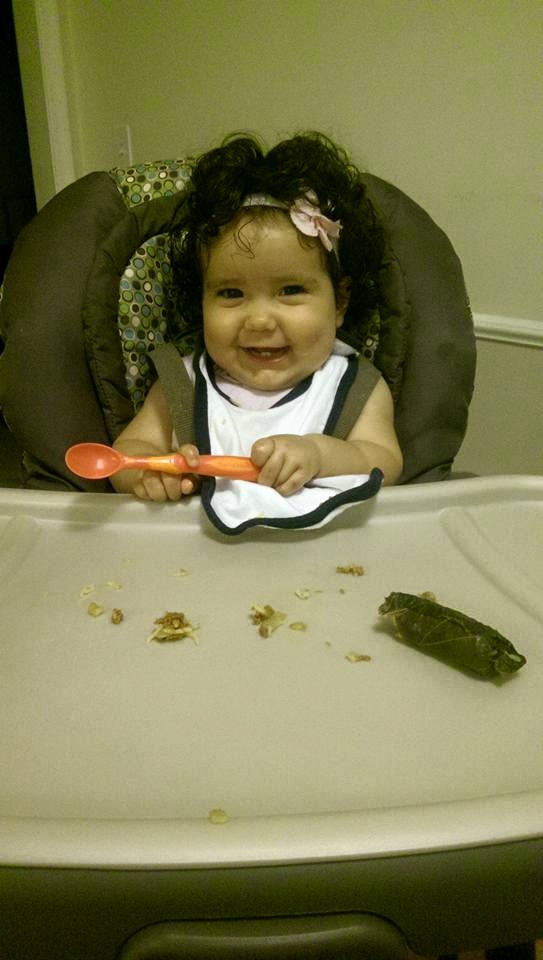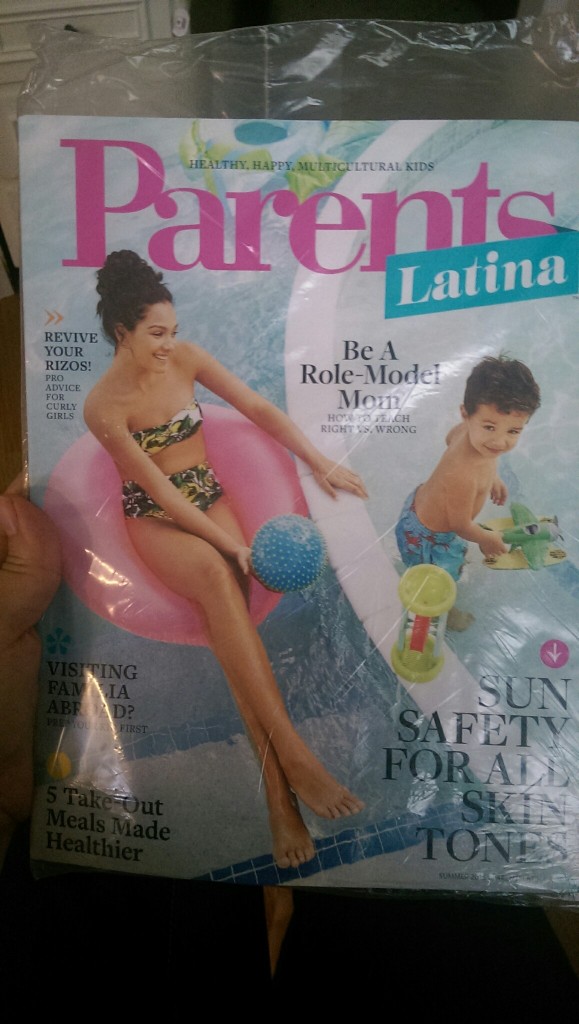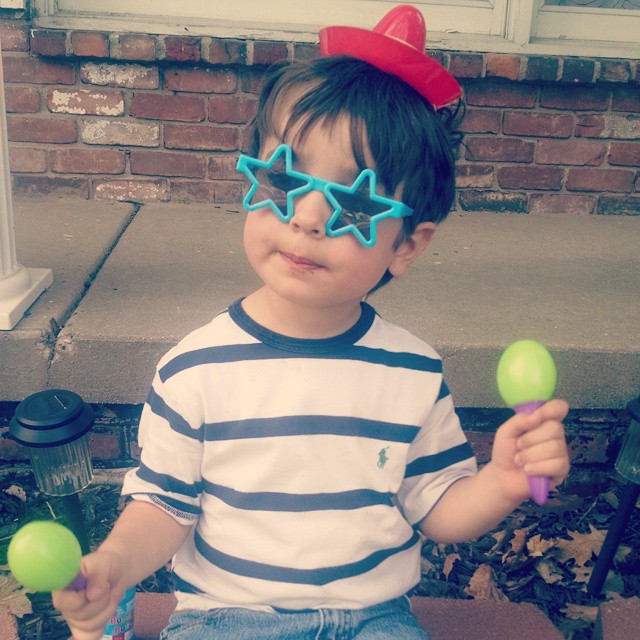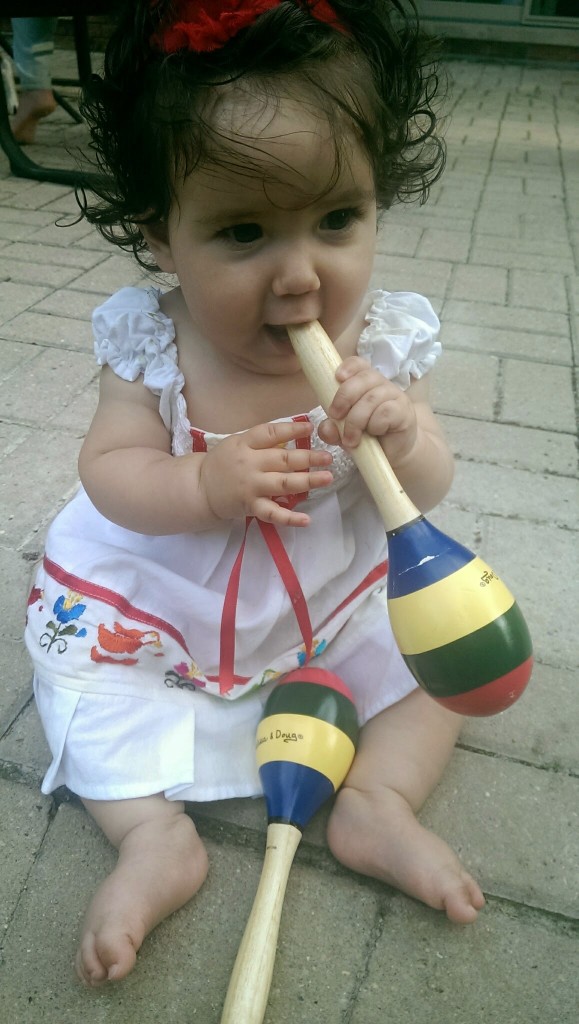My four-year-old trotted in from preschool the other day, my husband just behind him with baby sister and the day’s school reports in hand. “Mama, we looked at maps!” he told me happily.
“That’s great, Buddy!” I smiled as my husband, John, handed me his daily report.
“He’s already learned how to point to Michigan,” John told me, “but when his teacher asked him to point to where his family is from, he didn’t know what to do,” my husband said. “She asked me to help him, so I told him to point to Mexico and…” John paused and smiled because he knew this would be the interesting part. “Just Mexico,” he finished.
He received the eye-roll and dissatisfied grunt he expected: “Our son’s family isn’t just from Mexico!”
“What did you want me to do? Tell him to point to Chaldea on the map?” John asked. “I thought about trying to explain it. I really did. But I had a long day at work, and I figured it’d save us half an hour if we just pointed to Mexico and went home.”
I had to laugh because my husband was right; unless Melissa and Doug come out with a pre-World War I map of ancient civilizations, this isn’t a scenario that will ever play out easily.
What Are You, Anyway?
I am, as my friends have said, ethnically ambiguous.

I couldn’t even begin to count the number of times I’d been asked some variation of: “What ethnicity are you?” There was the kid at the summer camp where I worked who asked me, “Are you black, or white, or both?” The RA in my freshmen dorm who anxiously pulled me aside one day and said, “I hope this doesn’t offend you, but it’s been driving me crazy and I just have to ask. Where is your family from? You know, I mean like, originally?” Or the retired and slightly buzzed Professor at a fundraiser who simply said: “You look exotic. What are you?”
In the Detroit suburb I’m from, the answer is a relatively easy one: I am Chaldean. Here, not much more usually has to be said. Hummus-inspired parodies littered my Facebook feed not long ago and a popular morning radio show has even sponsored a Chaldean Idol.
Travel more than about 45 minutes, however, and the answer gets a lot more complicated. My sister once sat in a college lecture where the professor was discussing a verse in the Old Testament that mentioned the Chaldeans. When another student asked who they were, he said, “A race of people who are now extinct.” I like to imagine the look on his face when her hand shot up.
I lived in Chicago for three years, and what once was a one word answer suddenly became much more complicated. I began to dread the follow-up question: “Chaldean? What is that?”
When looking for financial aid during college applications, I was told Chaldean was too minor a minority to be considered. We don’t have a country anymore. Other than food words, swear words, and how to ask for my mother, I really don’t know the language. When I was growing up, I was good friends with a Chaldean family but their cousins used to tease me for “not being Chaldean enough.” I was baptized and married in the Chaldean Church, but otherwise, did not have much connection to it. So, what is Chaldean? That’s been a hard enough question for me to answer for myself; I felt particularly inadequate to be our cultural spokeswoman. If someone were to ask me what an American is, I could pretty easily say, “Someone from America.” But what do you do when you can’t just point to a map?
If It Quacks like Un Pato…


As much as I’ve often struggled with the question, I’ve also come to miss it. In 2007, I married my college sweetheart and took his last name: Torres. When I would tell people I’m Chaldean, people often said they’d initially thought I was Hispanic. Even my husband jokes that when he first asked me out, he’d assumed I was Latina (haha, I tell him, joke’s on you!!). Now that I am Nicole Torres, most people don’t even ask anymore — or if they do, the question is usually, “What part of Mexico is your family from?” When a student I was working with asked, I told him I am actually not Mexican, but Chaldean. He paused a moment and then asked, “Is that like one of the islands or something?” In all fairness, I was helping him with his Spanish homework.
Whenever I fill out forms for my children, I look carefully through the boxes that ask for race and ethnicity. I always check Hispanic, but there is the invitation to check all that apply. There’s never a box for Chaldean, though.
My Multi-Cultural Family
It’s become an ongoing joke, really. My friends refer to my abuelita as I cry out in mock anger, “I’m not Mexican!” But what do I do now that my children are? And, for as much as I have struggled with the question, what do I do when they ask me what Chaldean is? I barely know how to answer the question for strangers, much less tiny beings who are asking me to define half the blood that courses their veins. I’m lucky to raise them in an environment where Chaldean is more than a term they might come across once in Biblical conversation as a prelude to being cornered into non-existence. But at the same time, they’ll be checking boxes, too. They will have a last name that doesn’t evoke much curiosity. When people assume they are Hispanic, they will be half right. And, at the end of a long day, it is the easier, shorter answer.
So, I guess my bigger concern is, what do I do if my children don’t ask?
Are you raising children in a multicultural family? Have you tackled big questions by little people about race, ethnicity, and identity? If so, please share because I’d love to know!











